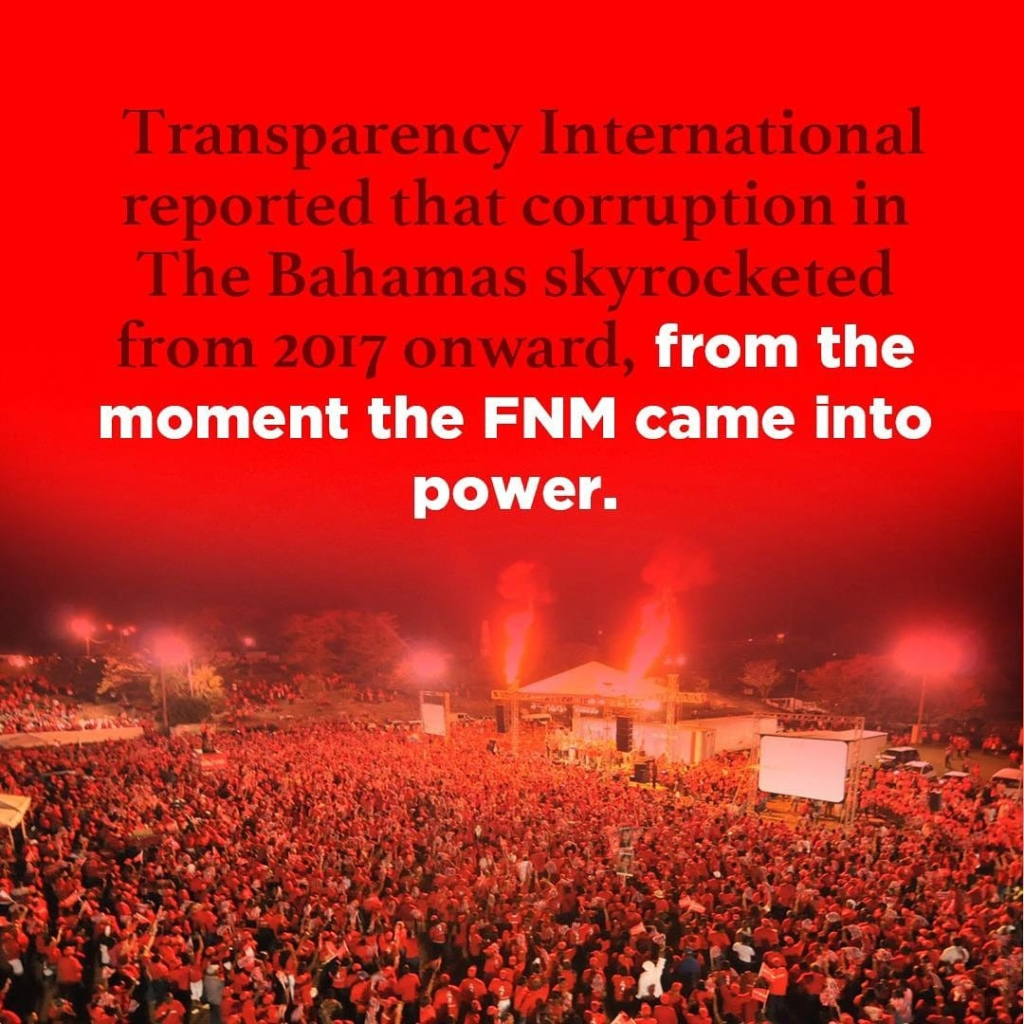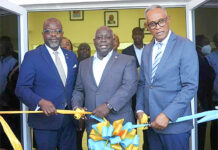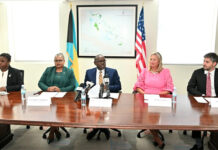
By Daniel S. Ferguson
On June 23 2021 an article Eyeing a transformation of heritage sites penned by the executive editor of The Nassau Guardian, Candia Dames, was featured in The National Review .The article spoke clearly about a Bahamian group Public Private Investment Ltd, who had reached an agreement with The Bahamas government for a public private partnership (PPP) to manage and refurbish cultural heritage sites, including the water tower and New Providence forts, and that both had a signed memorandum of understanding and management agreement. It is also interesting to note that some of the persons connected with PPL are also part of Kanoo.
I wish to make it clear that I have no difficulty with management agreements or public private partnerships, my concern is with the procurement process undertaken in reaching this agreement. Centreville MP Reece Chipman, a former AMMC Chairman who was interviewed by the National Review said the government by now should have provided some transparency on this arrangement. I agree with this statement and would go further to say that a competitive bidding process should have been initiated as in the absence of the Public Procurement Bill best practices ought to be considered. For example, the World Bank’s procurement guidelines of 2011 include specific provisions on the procurement of management services and private partnership arrangements. It states that while a formal procurement process may be time-consuming and administratively burdensome and may not be appropriate in ALL cases, it has the advantages of:
- Creating greater transparency.
- Creating a level playing field for bidders.
- Giving a project greater legitimacy (particularly if there is a change of government and allegations are made of cronyism in awarding the contract).
- Setting out clearly the qualities and experience (and financial strength) that each bidder needs to have before it can bid.
- Assisting the government to achieve better value for money through market testing.
Again because some of the persons involved with the AMMC project, who are also a part of Kanoo, along with his ties to the present administration the above would have been the best course of action to take.
Discussions are presently being held between the management teams of both the PPL and the AMMC for a handover of the facilities by September 1 2021 despite the fact that the government has yet to table the agreement in Parliament or place it on the e-Procurement Supplier Registry in accordance to their mandate. There are a wide range of questions that need to be answered publicly to ensure transparency and they are:
- What will be the the fate of the existing staff of the AMMC?
- How funds will reach the government’s consolidated fund?
- What procedures have been put in place to ensure that monies collected will not end up in a private bank account?
- Where did Public Private Investment Ltd finances for this project originate from?
- What are the benefits of this agreement for the Bahamian people?
Although Kanoo and PPL are two separate companies other questions will undoubtably be asked as the Ministry of Finance as yet confirm if the monies collected by Kanoo on behalf of the government for the Health Visa programme, have been deposited to the government’s consolidated fund.
In 2005 the Bahamas government issued an international Request for proposals for bidders to submit bids to manage, operate, maintain and develop the Lynden Pindling International Airport. This was done in a fair and competitive bidding process. Subsequently NAD was the successful bidder and it now has a 30-year agreement with the government.
According to a Tribune article dated June 16 2021 the Prime Minister Dr. Hubert Minnis said “ALL government contract awards will be published online and in newspapers when the Public Procurement Bill is passed and comes into force.
“Public information about contracts “will state what the contract is for, who it was awarded to and the dollar value of the contract,” “This will help to address all the whispering, the rumours, and the political mischief that has gone on for decades in our country,” “The citizens of The Bahamas will be able to see who is getting government contracts, for what purpose and in what amounts.”
The date of the handover is an interesting one as it’s the same day the government announced that the Public Procurement Bill will be enacted. Perhaps there are more contracts and agreements out there that are being completed to beat the enactment deadline as presently there is no law to announce any contract awards. However I have repeatedly said that the government has a moral obligation to consider best practices so they don’t have to wait to advise the public on the particulars of this contract. Is this one of the reasons for the Bill being delayed? Is it family friends and lovers time?
________
Mr. Daniel Ferguson, MCIPS, retired Chief Petty Officer, RBDF, Lead Investigator 2004 Lorequin Commission of Inquiry, a former Procurement Officer of the Ministry Health and Ministry of Finance and former Component Coordinator for the IDB sponsored Public Financial Management Reform Project, in particular the Public Procurement Reform. He led the drafting team for the development of the Public Procurement Bill 2021, Public Procurement Regulations assisted with the creation of the University of the Bahamas professional procurement officers training framework and managed the development of the e-Procurement Supplier Registry. He is a Chartered Member of the Chartered Institute of Procurement and Supply with over 25 years of experience in Public Procurement He was the Caribbean’s representative to the International Network of Public Procurement Officers for the years 2019-2021. A network supported by both the Organization of American States, Caribbean Development Bank and the Inter-American Development Bank.








